
Senior Lecturer, Dept of War Studies, King's College London. Russian and US foreign & security policy, US-Russia relations, European security. Views my own.
32 subscribers
How to get URL link on X (Twitter) App

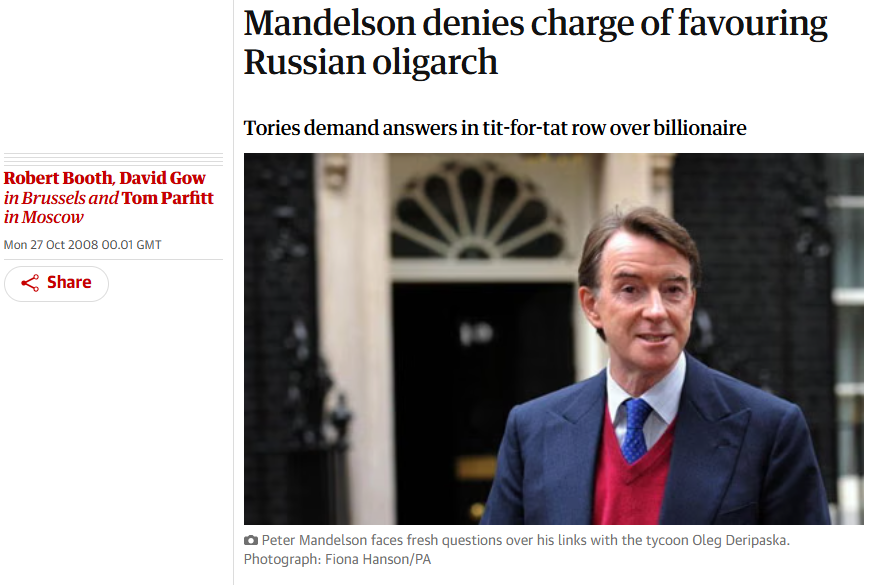


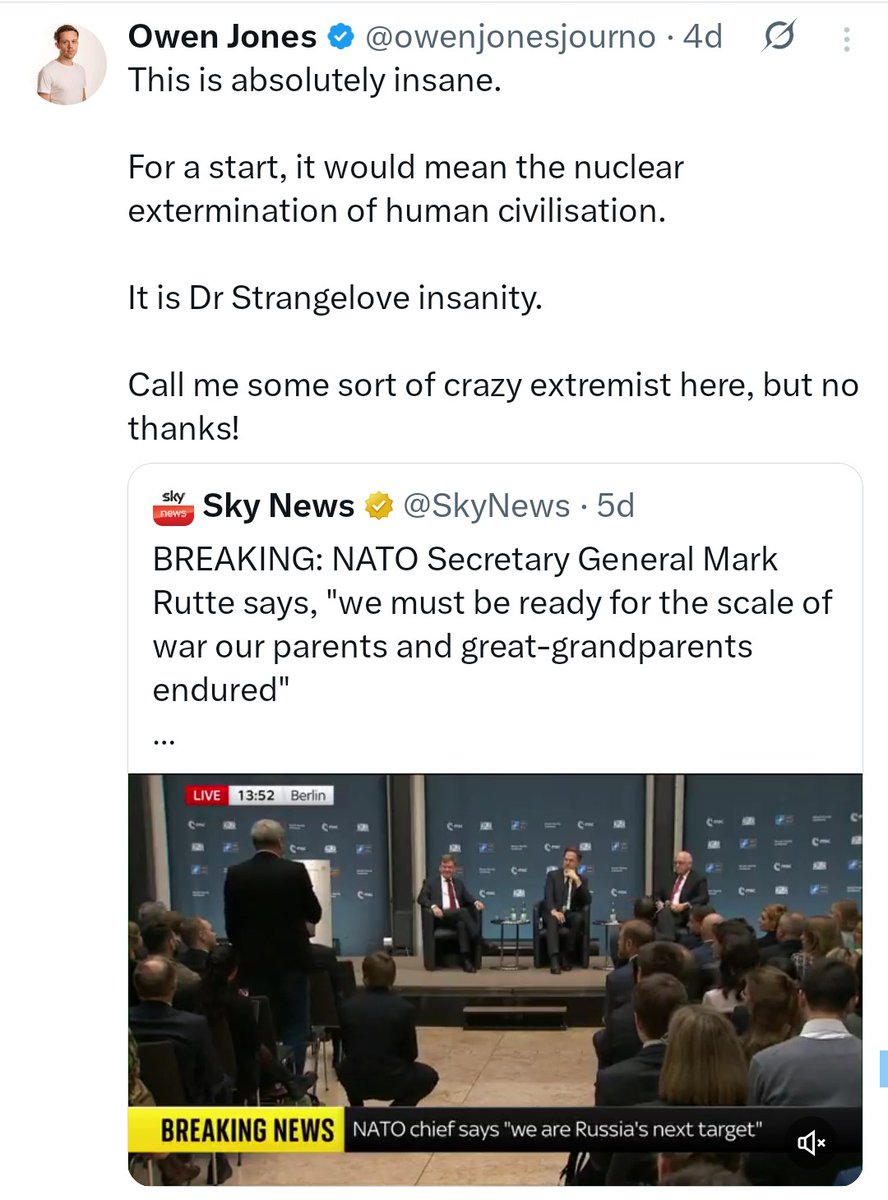 1. For over a decade, but particularly since 2022, the ideology of Putin's presidency has rested on the claim that the West is an existential threat to Russia - that the main goal of the West is to destroy the Russian nation and state, Russian values and culture.
1. For over a decade, but particularly since 2022, the ideology of Putin's presidency has rested on the claim that the West is an existential threat to Russia - that the main goal of the West is to destroy the Russian nation and state, Russian values and culture.


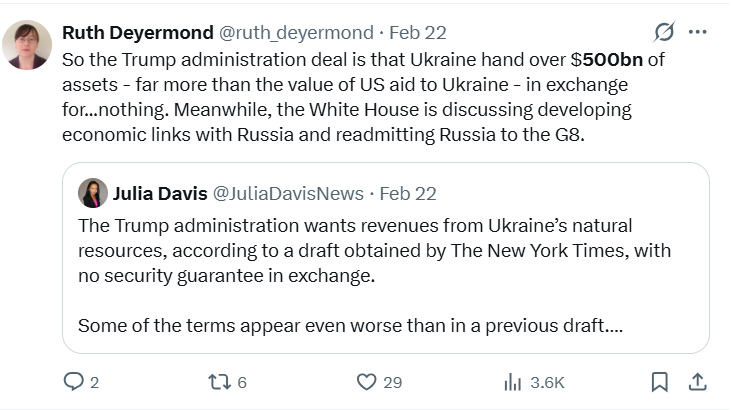
https://twitter.com/WSJ/status/1994589868144415225
 This one was in April. If your job required you to look at US Russia policy at all in the last year - or in Trump's 1st term, when he talked about economic relations with Russia and readmitting them to the G8 - none of this should be remotely surprising.
This one was in April. If your job required you to look at US Russia policy at all in the last year - or in Trump's 1st term, when he talked about economic relations with Russia and readmitting them to the G8 - none of this should be remotely surprising. https://x.com/ruth_deyermond/status/1914768312107401706

https://twitter.com/BarakRavid/status/1991869259887132752The proposed security guarantee is allegedly modelled on NATO Article 5, but that doesn't contain any of these qualifications for action, let alone all of them.


https://twitter.com/KyivIndependent/status/1985251814804201526During the 2016 election, Trump said that Putin was a better president than Obama. Also during the campaign, Trump claimed that Putin would never invade Ukraine; when it was pointed out that he already had, Trump blamed Obama for the annexation of Crimea, not Putin.

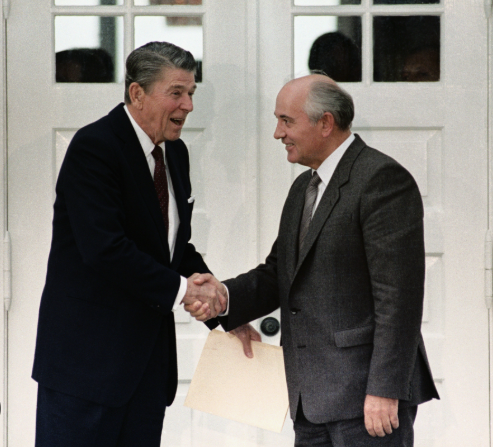
https://twitter.com/ruth_deyermond/status/1953953096591454507Before the 2022 invasion of Ukraine, it was standard for new US and Russian presidents to meet. This allowed them to work through issues of concern to the US (as the vastly more powerful state, the agenda was set by the US). This happened even when relations were cool.
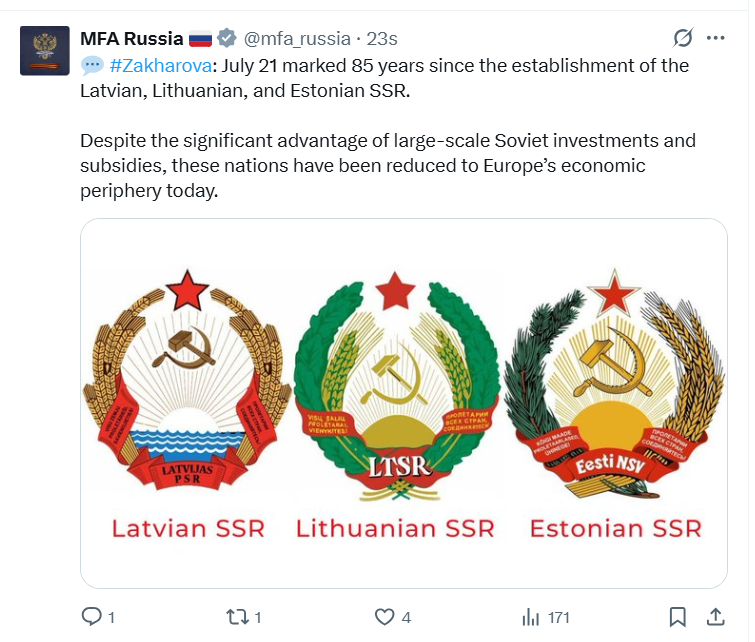
 I also recommend:
I also recommend: 


https://twitter.com/AmbDanFried/status/1903385692119384189Everything we can hear and see and everything we know about the dominant figures in the Trump administration indicates that the talks are being seen as a mechanism for building an informal US-Russia alliance. Attempting to carve up Ukraine is part of how this is being done.
https://twitter.com/Mylovanov/status/1898072831532867757Trump’s claim he’s “strongly considering” sanctions against Russia needs to be viewed in the context of this comment and the many other similar things he's said in the past. Penalising Russia is not something he's ever wanted to do, whatever Russia has done.

https://twitter.com/GLandsbergis/status/1895177611720241490Trump has *always* spoken and acted as if, in his words, "getting along with Russia" is one of his foreign policy priorities. This is not something on which he has ever changed position, and there is no reason to think he will do so now or in the future.


https://twitter.com/front_ukrainian/status/1890088012270207134Throughout Trump's 1st term, Russian aggression continued in Eastern Ukraine, killing hundreds of civilians and hundreds, maybe thousands, of Ukrainian soldiers defending their country. @OKhromeychuk's brother was killed during Trump's time in office.

https://twitter.com/nickschifrin/status/1889678322289738146This is, first and most importantly, a disaster for Ukraine, but it's also catastrophically bad for European and US security. The US and some in Europe will tell themselves that this is about the US sensibly reprioritising on security. But Putin will see it as capitulation to him

https://twitter.com/haynesdeborah/status/1876936037022237146Since the start of Russia's full-scale invasion of Ukraine, NATO members' defence spending as a percentage of GDP has been transformed. Compare 2021 and 2024 estimates:


https://twitter.com/SamRamani2/status/1859995943648755870The fact that Putin revised the nuclear doctrine, used his exciting new missile, and made threatening noises on TV isn't an indication that we've moved nearer to the use of nuclear weapons in the last week - on the contrary, it's a strong indication that nuclear use is not likely